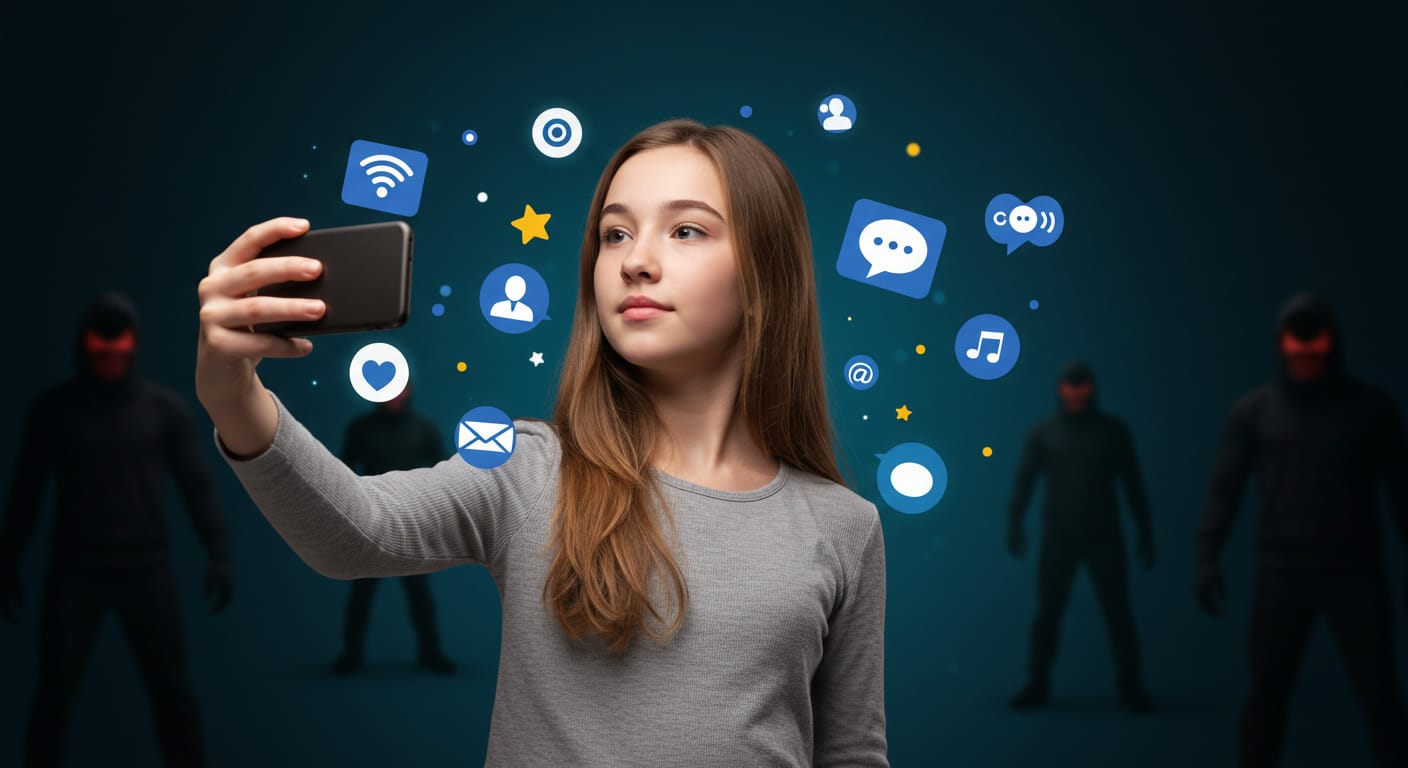Selfie Culture
A “selfie” is a photograph taken by a person of themselves, usually with a smartphone or handheld camera. Selfies are most often shared on social media platforms like Facebook, Instagram, and Snapchat—where the world is free to view, like, and comment any time they wish.
But while selfies may seem like harmless fun, an obsession with them can expose teens to serious cyber risks.
The Dark Side of the Selfie Obsession
Many teens today are fixated on capturing the perfect selfie at every opportunity. Whether it’s at home, in public, at school, or even in unsafe locations, selfies have become a form of validation. But this trend, when taken to the extreme, can open the door to:
-
📱 Cyberbullying
-
👀 Online predators
-
🌐 Privacy breaches
-
🧠 Mental health struggles
Especially for young girls, who are more frequently targeted online, the effects can be devastating.
When Perfection Becomes Pain
Take the case of Danny Bowman, a British teen who became dangerously obsessed with achieving the “perfect selfie.” Danny spent 10 hours a day taking up to 200 selfies. His obsession caused him to:
-
Drop out of school
-
Become housebound for 6 months
-
Develop body image issues
-
Become aggressive with his parents
-
Attempt suicide when he couldn’t achieve his ideal self-image
Danny later shared, “I lost my friends, my education, my health—and almost my life.”
Too Much Exposure, Too Little Privacy
Teens often post multiple selfies a day in search of likes, shares, and popularity. But many don’t realize:
-
❗Once something is posted online, it never truly disappears
-
👥 Anyone can screenshot or share your image without consent
-
🚨 Inappropriate selfies can lead to cyber extortion, harassment, or reputation damage
Oversharing can also make them vulnerable to stalkers and identity theft. In today’s digital age, you are what you post—and your digital footprint can follow you forever.
Why So Many Selfies?
Some psychologists suggest excessive selfie-taking is a cry for attention or approval. Others see it as a reflection of loneliness, insecurity, or low self-worth. After all, if someone constantly needs validation online, they may not be getting the emotional support they need offline.
What Can Parents & Teens Do?
👨👩👧 For Parents:
-
Talk to your teen about digital safety and self-worth
-
Set screen time limits and monitor social media behavior
-
Encourage face-to-face interactions over virtual ones
-
Reinforce that their value isn’t based on likes or appearance
🧠 For Teens:
-
Think before you post—would you want a teacher, parent, or future employer to see it?
-
Avoid sharing overly personal or suggestive images
-
Unfollow accounts that make you feel “less than”
-
Know that real confidence comes from within, not filters or hearts
Final Thought: You Are More Than a Selfie
The selfie trend isn’t going away—but it doesn’t have to take over your life either. It’s okay to post a photo now and then, but don’t let your self-worth be tied to digital applause.
Remember: once it’s online, it’s forever. And no photo is worth your safety, mental health, or peace of mind.


